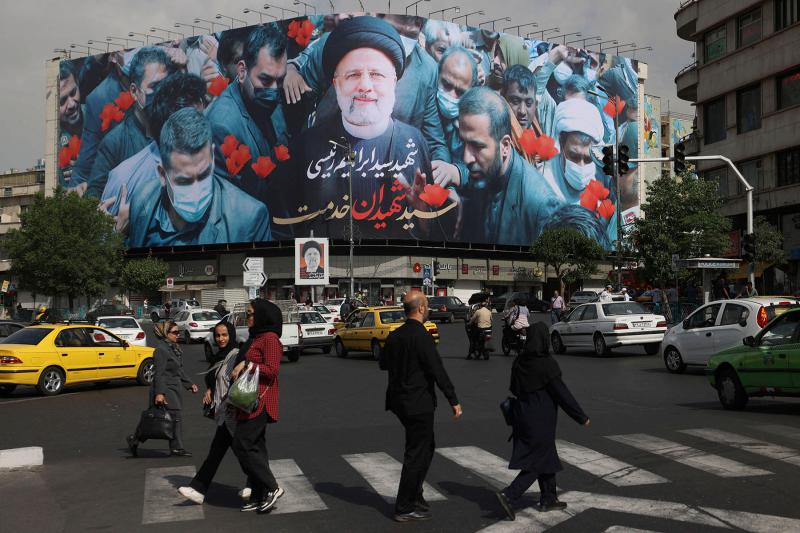WASHINGTON / TEHRAN
White House national security spokesman John Kirby told reporters, a day after Tehran announced the death of President Ebrahim Raisi in a helicopter crash, that the United States will continue to hold Iran accountable for what he called “destabilising activity” in the region.
“No question this was a man who had a lot of blood on his hands,” for supporting extremist groups in the region Kirby added.
Experts believe the death of the Iranian president could lead to a period of political instability but is unlikely to change Iran’s foreign policy or its role in the Middle East. Nor is much in the balance of power at home likely to change.
The hardline cleric was considered a favourite to succeed supreme leader Ali Khamenei, 85, who has ultimate authority in Iran, and Raisi’s death will pose a challenge to the country’s authorities in ensuring the stability of the political system.
But analysts are betting on the continuity of the Islamic republic’s foreign policy which is the domain of Ayatollah Khamenei and the secretive Supreme National Security Council.
“A successor may emerge who is as conservative and loyal to the system as Raisi was,” said Ali Vaez, an Iran specialist at the International Crisis Group.
“On foreign policy, the supreme leader and the Islamic Revolutionary Guard Corps will continue to dominate strategic decisions”, he said on social media site X, anticipating “more continuity than change”.
Farid Vahid, an Iran expert at the Fondation Jean-Jaurès, said that “Raisi was absolutely in lockstep with the Guard Corps”, which “has left a lot of room and freedom for the Guards in the region”.
With Raisi, “decision-making was very fluid because he was completely subservient to the leader”, Vahid added.
“The question for the Iranian conservatives is to find someone who will be elected … and who will not cause them too many problems.”
Iran is scheduled to hold presidential elections within 50 days to replace Raisi, with vice-president Mohammad Mokhber, 68, to assume interim duties.
Raisi’s death comes at a time when tensions are soaring between the Islamic republic and Israel following the start of the war in Gaza after the Hamas attacks on Israel on October 7.
Those tensions peaked in mid-April when Iran, trying to save face after an unprecedented attack in Damascus killing Revolutionary Guard generals, carried out a well choreographed but harmless attack against Israel, in which it unleashed 350 drones and missiles, most of which were intercepted with the help of the United States and other allied countries.
Tehran also supports the so-called “Axis of Resistance” against Israel, a network of armed groups including Lebanon’s Hezbollah, the Palestinian Islamist movement Hamas and the Houthi rebels in Yemen. Despite the pressure which military expenses exert on the Iranian budget, the network of proxies is expected to continue serving as a precious tool for Tehran in terms of enforcing its regional encroachment, say analysts.
“It will be (the) status quo,” Jason Brodsky, an expert at the Middle East Institute, said of Iran’s relations with these groups.
“The IRGC reports to the supreme leader and liaises with Hezbollah, the Houthis, Hamas and the militias across the region. The modus operandi and the grand strategy of the Islamic republic will remain the same,” he told the BBC.
“The strategic decision-maker in the system is the supreme leader, the president is an implementer.”
Iran denies it wants to acquire nuclear weapons, but it is no longer complying with its commitments under the 2015 deal with world powers which limited its nuclear ambitions in exchange for the lifting of international sanctions.
The pact, known by the acronym JCPOA, fell apart after the unilateral withdrawal of the United States under then-president Donald Trump in 2018 which led to the reimposition of crushing sanctions on Iran.


